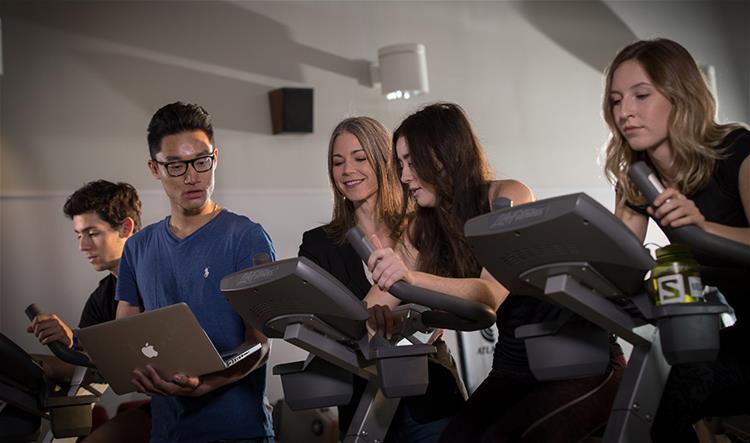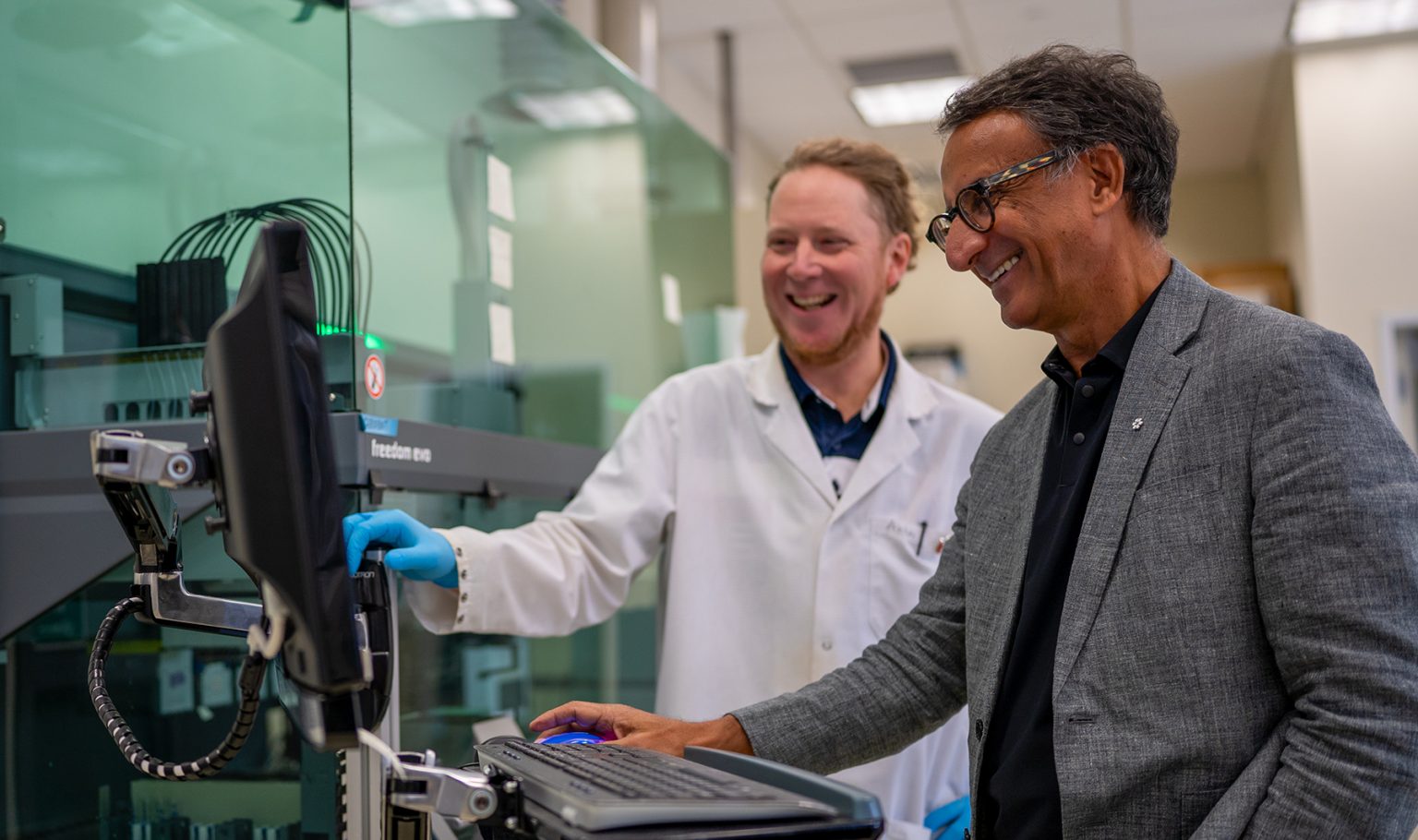
Published: December 1, 2017
How can exercise help improve memory and promote brain health? Could higher levels of activity help prevent cognitive decline in the aging brain?
On December 6, Jennifer Heisz, an assistant professor on McMaster’s Department of Kinesiology and member of ​the McMaster Institute for Research on Aging, ​discussed these questions and more at Just the Facts Please: An Exercise in Achieving Optimal Health, a public event aimed at exploring the science behind cardiovascular, skeletal and brain health.
What’s new in your research when it comes to achieving optimal brain health?
I direct a team of researchers in the NeuroFit Lab, where we’ve shown that physical inactivity contributes to dementia risk as much as genetics. We’ve also demonstrated that high-intensity exercise improves memory in both younger and older adults. Our next step is to understand how exercise alters the brain.
Read more: Workouts to remember: New research suggests high intensity workouts boost memory
What solutions or guidance does your research offer the public?
I will present a study that shows that the simple act of planning exercise ahead of time in a calendar will help you stick with your exercise goals over the long-term.
Why is it so pressing to talk about ways of preventing cognitive decline?
For the first time in history, older people outnumber the younger. This has created unique health challenges. The scariest? Dementia—a debilitating condition that erases memories. What’s worse: there’s no cure. That’s why my research on interventions to prevent dementia is so vital.
What do you hope people will take away from your talk?
Exercise is not only good for your physical health but your brain health too.
Source: McMaster University

